The Damned (1963)
Directed by: Joseph Losey
Written by: Ben Barzman, Evan Jones, H.L. Lawrence
Starring: Macdonald Carey, Oliver Reed, Shirley Anne Field, Viveca Lindfors
AKA THESE ARE THE DAMNED
UK
AVAILABLE ON DVD
RUNNING TIME: 96 min/ 87 min/ 77 min
REVIEWED BY: Dr Lenera, Official HCF Critic
THIS REVIEW CONTAINS SPOILERS!
Recently divorced insurance executive Simon Wells is on holiday in Weymouth. After trying to chat up a young woman called Joan, she lures him into a brutal mugging at the hands of her brother, King, who has incestuous feelings for his sister and hates it when men show an interest in her. Meanwhile sculptress Freya arrives in the town to spend time in her sea-front property, but her military official boyfriend Wilson won’t tell her what he does in the secret underground army base nearby. The next day Joan joins Simon on his boat and he convinces her to run away with him. The couple, still pursued by the gang, run into the military and fall off a cliff to be found by a group of children whose skin is cold to the touch….
I don’t think I really ‘got’ The Dammed the first couple of times I saw it, which seemed to be rather disjointed to the point of almost seeming like two separate films joined together, and not really making the most of its premise, but it did haunt me with its incredible bleakness, and this around I really appreciated what a remarkable film it is, a film which ranks up there with the very best of Hammer’s output, though aside from certain things like James Bernard’s score, it doesn’t seem much like a production from the studio at all, almost entirely lacking that Hammer feel and pretty heavy with the messaging and allegorical aspects, things which Hammer tended to avoid like the plague. It’s easy to see why both the studio and the paying public were unsure about a film which yelled “Ban the Bomb”, seemed to imply that society was disintegrating, and had an ending which appeared to offer no hope whatsoever [though after thinking about it, it does have a little]. Seen nowadays though, one can easily realise what a fascinating and audacious work it is, daringly changing from an offbeat youth drama to a genuinely disturbing and upsetting science fiction thriller which has such lasting power more because of its restraint, rather than in spite of it. I think it’s almost a great movie, and it’s a pity that its director didn’t make any more films for Hammer.
American Joseph Losey, who would go on to make odd films like Figures In a Landscape and The Go-Between, and followed The Damned with the much acclaimed The Servant, was in England because he’d been blacklisted as a communist during the McCarthy witch hunts. Early 1961, Hammer offered him H.L. Lawrence’s sci-fi novel The Children Of Light. He got his usual collaborator Ben Barzman to write a script which, with much input from Losey, downplayed the fantastical elements and altered things so the story would be sympathetic to his political sensibilities. The two fell out and Losey got Evan Jones to totally rewrite it, bringing it very far from the novel indeed, with help from producer Anthony Hinds. Shot mostly on location in and around Weymouth, the film went over budget by £25,000 and almost had a stuntman drown when a car driving off a bridge and into the sea overturned and the seatbelt wouldn’t release. US distributors Columbia asked that Freya be shot at the end by a marksman rather than Bernard, but the original ending remained. Hammer were unhappy with the film, insisting on reshoots, then cutting it from 96 minutes to 87, mostly snipping bits of heavy dialogue, while Losey delayed making a requested BBFC cut which showed King beating Wells with his umbrella. Two years later, The Damned finally came out in a double bill with Maniac, while in the US, retitled These Are The Damned, it lost a further ten minutes, chiefly more dialogue, notably a scene making an incestuous element obvious, before being released to little interest in 1964. The film’s reputation has greatly increased over the years and the full version was released in art house cinemas in 2007.
The film’s opening is immediately unusual and striking, the titles and Bernard’s austere music playing over a slow camera pan over Portland Bill Beach before taking in an array of odd and rather disturbing sculptures of people and things in a heavily burnt condition. Then the music switches to a rock song Black Leather Rock which may not actually be too good but which probably sticks in the mind of anybody watching the film with its catchy tune and inane lyrics. It plays over a brilliant edited scene, which may have influenced Richard Lester’s Beatles movies, not to mention bits of A Clockwork Orange [and other elements may have inspired that too, like Wells attacking the sculptor Freya] where Wells is enticed by flirty Joan to follow her and be mugged by the gang of teddy boys led by her brother King, foppishly wielding an umbrella. Now the 87 minute cut of the film lessened the introduction of the other two main characters in the film; Freya and Wilson, the army chief who is working on something deadly secret nearby, making the genre switch half way through more jarring, but in the full version it’s foreshadowed a bit better. In any case, the romance of Simon and Joan is enjoyably offbeat and hard to predict at first; he thinks she’s hitting on him twice, and so do we somewhat, but her feelings are very mixed and when he really tries it on she pushes him away, at least until a bit later. Perhaps he’s too old for her, but considering how damaged she reveals herself to be, he may be the kind of guy she’d go for, while his role as a father figure to Joan and, later, the children is nicely paralleled by the nastier father figure of Bernard. Her brother having certain feelings for her is easy to pick up on, yet also oddly gives King a strange kind of vulnerability, something that also occurs when he visits Freya and destroys a sculpture. She’s upset, and so are we, but it’s clear that King is very messed up and saw something in the admittedly rather unpleasant works of ‘art’ that has disturbed him.
Once the action shifts to the underground base and the strange children who appear to be kept prisoner there, King is no longer the villain. Instead, it’s shadowy military [and perhaps] government types who are raising mutant radioactive kids so that, when the impeding nuclear war happens, they will be able to survive the aftermath. These children seem to have certain supernatural abilities, like being able to open a door without touching it, but this is underplayed so that the real tragedy and horror of their situation comes through better. The film gradually feeds us little details about these poor children who think that Simon and Joan are their parents who have come to take them away, before a brilliant moment of horror of the most subtle kind where we adopt the POV of someone walking around the main room in the base and towards a child – and then the camera swings round and the man is revealed to be wearing an anti-radioactive suit! Suddenly your heart almost misses a beat as we realise that Simon, Joan and Wells – the latter now someone who we’ve almost come to like – are doomed, unless a silly happy twist [like they find a cure, or discover they’re not infected after all] comes along, which would have been the case in most other films, and which I was convinced would occur the first time I watched the film. But no, this one follows its depressingly logical course right to the end, and deserves considerable praise for doing this even if you find it all too miserable. The kids are rounded up as soon as they try to escape in a truly chilling, upsetting sequence. Characters are shot, commit suicide or are left to slowly die in a boat, usually while black helicopters menacingly hover just above, a faceless menace from which there is no escape.
Society seems to be collapsing in the world of The Damned, something even shown by the dropout Wells character, and a nuclear holocaust isn’t far off. Everyone in this world is damned in some way, and right from the beginning, do we really think that hero and heroine, especially considering the latter’s past, would have been happy together if they’d not come across the children? The social alienation of King and his gang, who aren’t really that bad at all compared with the military, scientist and government types running the programme, is mirrored by the physical alienation of the innocent children. Their abusers, and abusers they basically are, are so sure of impeding nuclear destruction that they’re practically wishing for it to occur and have clearly lost their humanity already; they’re the real monsters, not the children. The film leaves us with the suggestion that the kids may survive when the bombs are dropped, and that this may be a good thing, but we’re still left frightened by the still all-too-relevant wieldings of the machinery of power. I’ve never been entirely sure as to how the Freya character fits into all this, but maybe she’s creating her monstrosities as some kind of coming to terms with what is going to happen. The film does make a few mistakes like the assumption that radioactivity would make the children cold to touch, but is still remarkably convincing overall and very believable considering what scientists can do nowadays, while the Cold War backdrop doesn’t really date if you think of how dangerous our world is today. Also notable is how intelligent much of the sometimes quite philosophical dialogue is, and how Losey resists the temptation to use it to preach to the viewer.
Acting-wise The Damned is a mixed bag, with Macdonald Carey ia little bland as the hero and Shirley Anne-Field genuinely unconvincing as Joan, a character who needed a more nuanced performer to really come alive, but at least Reed broods superbly [he has his best Hammer moment when Joan verbally rips him apart and he reveals how pathetic he really is], and Vivece Lindfors [Freya] and Alexander Knox [Bernard] really get their teeth into their characters, Knox especially effective and disturbingly believable as he switches from admirable visionary to cruel madman to cold-blooded killer. The rather forbidding landscape around Portland Bill, often shown in glorious wideshots which tend to slowly pan around to something more intimate, is excellently evoked by cinematographer Arthur Grant, while Bernard’s restrained score has a cold beauty. The Damned really is one film that gets better with each viewing, the psychological interplay between the characters being especially increasingly interesting. Yes, it’s structurally a bit messy, and its second half could have done with being a bit longer, but, whether you politically lean to the ‘left’ or to the ‘right’, its quiet power and chilling effect is undeniable. The final pan out from Portland Bill while we hear the children’s cries of: “Help, please help us, someone help us”, is one of the most heartbreaking final moments of any science fiction film.

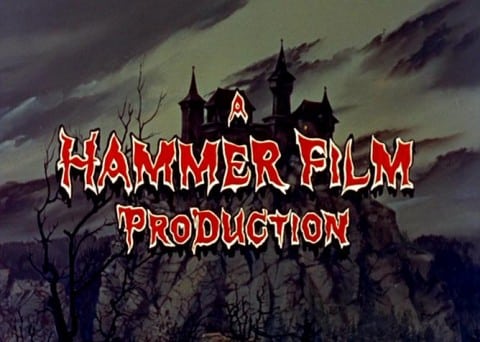
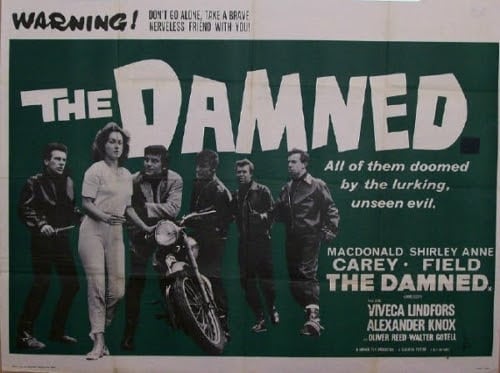
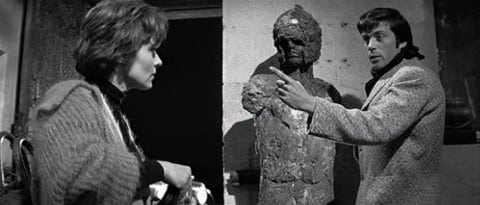
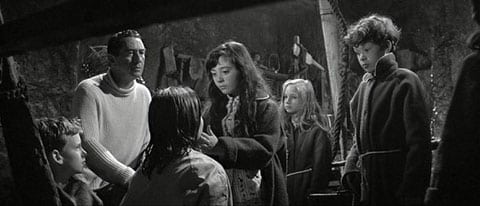




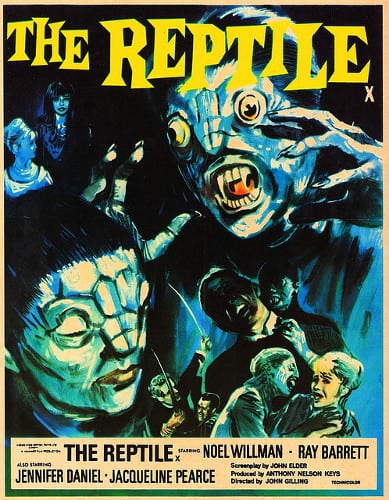
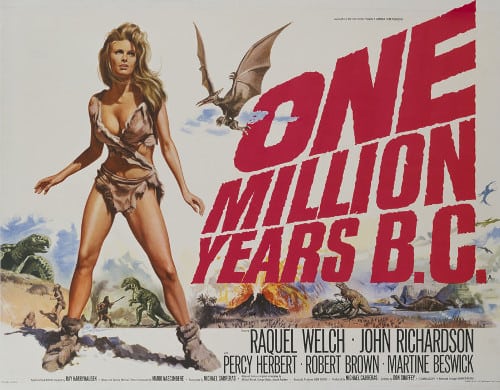
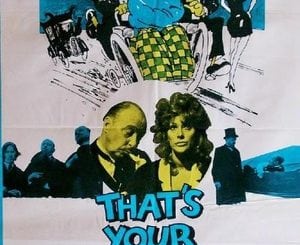
Be the first to comment